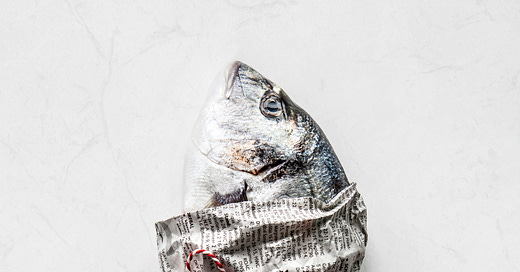Whenever I come across a writing prompt, I get excited. Because on some level, a prompt is a promise that if you keep going, a story awaits you. Like a billboard on a desert highway informing you that in 100 miles you’ll get to a diner or a motel with a hot shower, a writing prompt indicates the likelihood of a story somewhere down the road. People wouldn’t waste their time putting up a billboard if there wasn’t really something good up ahead, and Meg wouldn’t dedicate a whole Substack newsletter to prompts if she didn’t think people were going to use them to write something worthwhile.
When I suggested to Meg Pokrass that we collaborate, I was thinking of an ecological idea: what if I sent her an old story of mine, and she used it as inspiration for a prompt, which I would then use as inspiration for a new story?
Was it fun? A lot more than I’d expected.
Would I do it again? Absolutely.
If I could take only one writing prompt with me to a desert island, which one would I choose? Well, that’s going too far. I think we should stop here.
Meg's prompt: Write a story in which a character is forced to tell a story they no longer believe in.
Guided Tour
This story has just relocated to Autocorrect, my forthcoming book.






Love this collab, 2 of my fav substacks
Beautiful.